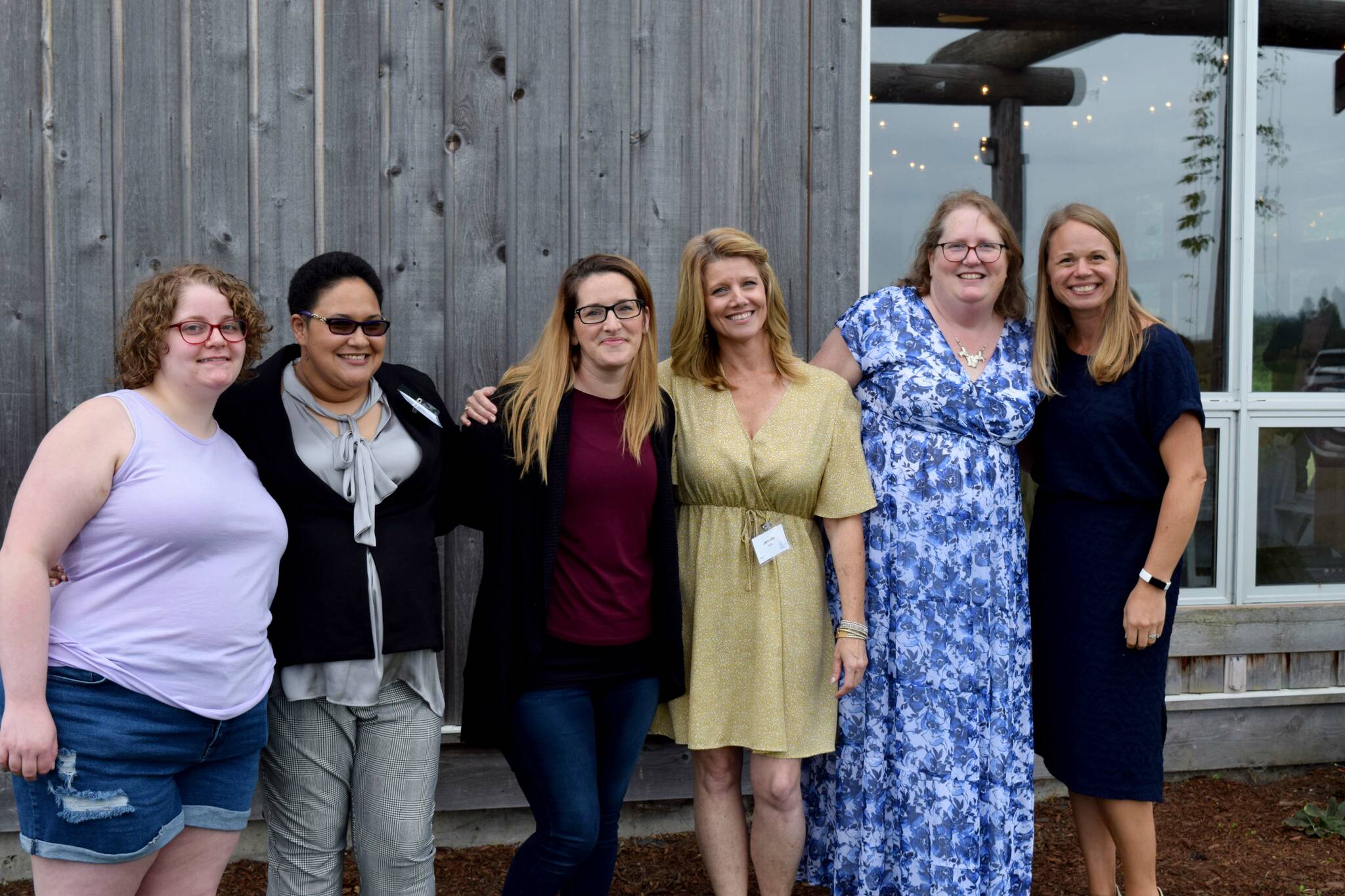As a housing case manager for Reclaim, formerly Snoqualmie Valley Shelter Services, Kellie Parker is used to running up against walls trying to find housing for the 40 or so clients she manages at any given time.
That’s what makes this past October so special.
In a record setting month, Parker transitioned 11 shelter clients – who had been staying at Reclaim’s congregate shelter in downtown Snoqualmie or area motels under a voucher program – into permanent supportive housing units.
A majority of those 11 clients moved into Plymouth Crossing, a 92-unit permanent supportive housing complex in Bellevue’s Eastgate neighborhood. The building, which opened earlier this year, is the first permanent supportive complex on the Eastside and the closest supportive housing to Reclaim.
Plymouth Crossing serves residents who have disabilities or experienced chronic homelessness, offering them support through onsite services, staff and their own studio apartment — with no time restriction — to ensure they remain housed.
“This is a way for residents to be able to stay housed and be in connection with people,” said Jennifer Kirk, Reclaim’s executive director. “They have the appropriate services on site for them and the homes to keep them housed permanently so that they’re not in and out of housing while struggling through whatever the challenges they may be experiencing.”
Parker, who nominates Reclaim residents for housing every day, tracking down paperwork and navigating the bureaucracy, said the facility has been life-changing for many of their clients in such a short time. Some of those who moved to Plymouth had been with Reclaim for only a few months, while others had been with them for years.
“One former client came to pick up his mail at the shelter and he was beaming,” Parker recalled. “He said he doesn’t refer to the shelter as home anymore.”
“It’s exactly what we wanted,” Kirk added.
Reclaim is among a list of Eastside nonprofits and cities who have priority for Plymouth Cross units. Kirk and Parker both note the building’s proximity to the Valley is a huge part of its appeal.
While Parker works endlessly with clients, Kirk said, there are obstacles to housing residents from the Snoqualmie Valley due to the lack of facilities in or near the Valley. Before Plymouth, the closest permanent supportive housing options for Reclaim’s residents were in Seattle.
Many clients had trepidation about leaving the Valley, where their family and support system is. It can also be difficult to convince them to relocate to housing in the city, Parker said.
“Many have grown up here, their parents live here, their entire support system is here, so they can’t imagine living anywhere else,” Kirk said. “Then there’s the other layer, where there is concern about going into Seattle.”
One client, Parker recalled, walked away from a voucher for supportive housing because it was in Seattle.
“It was a little bit heartbreaking,” she said. “Their community was in the Valley and unfortunately there’s not affordable housing in this community.”
With Plymouth, Parker said there were fewer fears about leaving the Valley, noting it’s closer, less dense than Seattle and on a direct bus line to the Valley.
Kirk was also quick to praise Parker’s work as a case manager, saying that there is a “job description” for what she does.
“Kellie just goes far beyond being a case manager. She is driving people to doctor’s appointments, to dental appointments. Last week, Snoqualmie Running donated shoes, and her and her partner got in a vehicle and picked them up after work,” Kirk said.
For Parker, who was born and raised in the Valley, she said the motivation comes from seeing herself in every client who walks through Reclaim’s doors. Like many staff at Reclaim, Parker has experienced homelessness herself and expressed how difficult it was to seek help.
“Everyone who walks through the door is seeking connection. They’re seeking stability,” she said. “Being able to walk along with people in that process is pretty incredible.”


